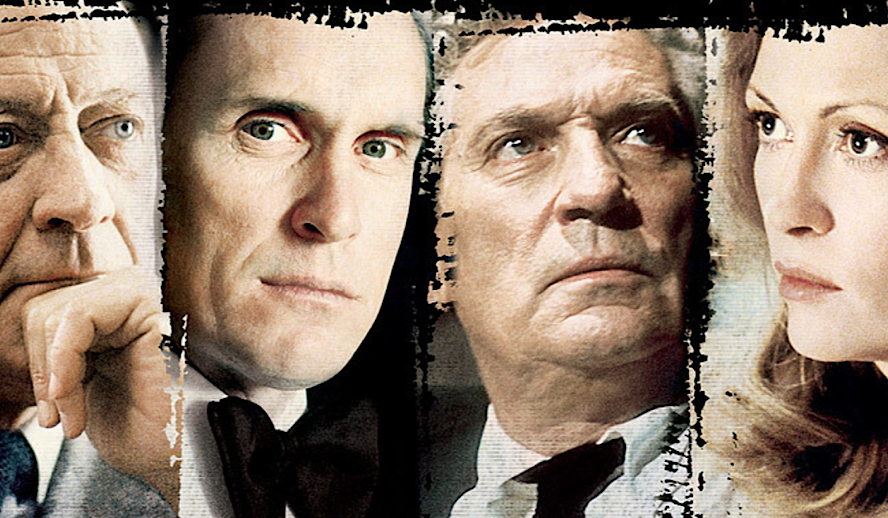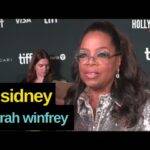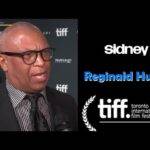Table of Contents

Photo: ‘Network’/United Artists
The year is 1976 and “The Howard Beale Show” is receiving record low ratings at the middling UBS News Network. After a 15-year tenure behind the news desk, Beale is asked to quietly shuffle off to an early retirement making way for a fresh-faced replacement. In his penultimate address to his flagging viewership, Beale undergoes a tempestuous and spectacular meltdown before being feverishly dragged off of the set. When the executives of UBS awake the next morning, they find their network has its first hit in years. Television will never be the same.
Related article: A Retrospective on Tom Hanks’ ‘The Green Mile’: 2021 Lens on Portrayal of Jim Crow South and American Justice System
A Film Made For the Future Left in the Past
In Sidney Lumet’s transcendent takedown of the 1970s American media conglomeration ‘Network’ (1976), the acclaimed director documents the final days of broadcast journalism and portends the coming birth of the fear-mongering tabloid news cycle. Through an impossibly prescient Academy Award-winning screenplay from Paddy Chayefsky, a remarkably deep assembly of esteemed actors and actresses, and an enduringly relevant thesis on truth and television, the film belongs amongst the likes of ‘The Godfather’ (1972), ‘Taxi Driver’ (1976), or ‘Star Wars’ (1977) when returning to the fundamental texts of the New Hollywood era.
After 45 years, the film remains an incendiary masterpiece, reaching through the screen and grabbing hold of its audience as if possessed by the same spirits as Howard Beale. One simply cannot look away as the situation rapidly devolves both in front of the camera in the form of Beale’s slipping sanity and behind it through the cold and unfeeling cabal of warring network executives. If anything, time has only worked in favor of ‘Network’ thematically, lending credence to the film’s more outlandish prognostications, yet curiously the film has not endured that friendly of a shelf-life.
Related article: MUST WATCH – Hollywood Insider’s CEO Pritan Ambroase’s Love Letter to Black Lives Matter – VIDEO
Subscribe to Hollywood Insider’s YouTube Channel, by clicking here.
Like many of Lumet’s films over the years, the film has been largely overlooked by modern audiences and relegated to the proverbial B-list of supposedly seminal classics. Fewer and fewer have returned to the film as it has aged and the once iconic status its characters and their dialogue had achieved has steadily dwindled. But if moviegoers in 2021 were to put a pause on their listless Netflix surf or free-fall down the Disney+ rabbit hole and fire on ‘Network’, they would undoubtedly have an interesting and ultimately mystifying watch that would leave them with plenty of questions, some chilling answers, and the formation of a vastly different perception of the televisual world going forward.
A Well-Oiled Machine of Movie-Making Magic
The pairing of Chayefsky and Lumet seems little less than destiny as the two bring out the best in each other’s work. The latter was famous for his cogent verbal storytelling in the likes of ‘12 Angry Men’ (1957) and the former was one of the most lauded dialogue-crafters of the time. If a list of the greatest monologues in Cinema history were to be composed, practically every episode of The Howard Beale Show would have to be featured along with four or five other speeches from the film. A viciously biting satire, the film allows itself to never stray too far into any clearly defined genre. At one moment it is a starkly serious newsroom drama and in another, it is a tumultuous romance or a macabre comedy.
This constant fluidity of tone and purpose is helped along by the remarkably versatile cast that the film assembles and employs to their absolutely zaniest potential. From top to bottom, the actors and actresses on screen compose the very best of the era and regardless of screen time, leave a staggeringly strong impression long after the film has finished. The winner of the Best Actor category at the 1977 Academy Awards, the film rests upon the shoulders of the unassailable Peter Finch. Finch delivers one of the most legendary screen performances of all time, filling the gargantuan shoes the script leaves for the would-be modern messiah of television character Howard Beale.
Continuing down the list, the cast features players at the absolute height of their popular powers, including Faye Dunaway off the back of ‘Chinatown’ (1974), William Holden following ‘The Wild Bunch’ (1969), and Robert Duvall in the wake of ‘The Godfather Part II’ (1974). It also showcases some of the most memorable one-scene performances in film history; Ned Beatty as the vitriolic executive of WWFC and Beatrice Straight as the arresting wife of Holden, winning an Oscar for only five minutes of screen time.
An Enduring Legacy of Crazed Clairvoyance
While every technical aspect of ‘Network’ is impeccably realized, what truly earns the film the right to remain an incredibly important cultural document in the 21st Century is its preposterously prophetic central message. Whether one agrees with the film’s ideological bent or not, it is nearly impossible to look beyond the various touchstones of modern society that the film both outlines and ferociously decries. In 1976, the film managed to tap into primal angst surrounding the so-called ‘TV Generation’.
Related article: Hollywood Insider’s CEO Pritan Ambroase: “The Importance of Venice Film Festival as the Protector of Cinema”
Related article: The Masters of Cinema Archives: Hollywood Insider Pays Tribute to ‘La Vie En Rose’, Exclusive Interview with Director Olivier Dahan
Related article: – Want GUARANTEED SUCCESS? Remove these ten words from your vocabulary| Transform your life INSTANTLY
This fear grew from the notion that an entire generation of American children had been raised by the screen, listening solely to the television and unable to invariably draw the line between fact and fiction. Through the vessel of Beale and his caustically manic on-air rants, the film unloads much of its foreboding unease, holding up a steady mirror to both the stagnated generation it was born into as well as the increasingly digitized generations that followed.
Quite simply put, the film is an essential cinematic viewing experience. Very few times has a film so loftily outlined the future and still been so enormously vindicated in the decades since its release. Four-time Academy Award-nominated screenwriter and one-time winner for ‘The Social Network’ (2010) Aaron Sorkin has said of the film, “…no predictor of the future—not even Orwell—has ever been as right as Chayefsky was when he wrote ‘Network’.” While Sorkin and many versed film scholars like him still assert this movie as a true cultural cornerstone and uphold its lasting modern-day significance, they belong to a hushed minority.
Modern audiences owe ‘Network’ at the very least a rewatch and at most, a renewed life as a monitorial guide through the dangers of losing touch with truth and the encroachment of television into every aspect of modern life. While some contemporary audiences may be overwhelmed by the film and its uncomfortably uncanny themes one thing is for certain, none of them will ever think of television the same.
Cast: Peter Finch, Faye Dunaway, William Holden, Robert Duvall, Ned Beatty, Beatrice Straight
Cinematographer: Owen Roizman | Editor: Alan Heim
Director: Sidney Lumet | Writer: Paddy Chayefsky | Producers: Fred C. Caruso, Howard Gottfried
Click here to read Hollywood Insider’s CEO Pritan Ambroase’s love letter to Black Lives Matter, in which he tackles more than just police reform, press freedom and more – click here.
An excerpt from the love letter: Hollywood Insider’s CEO/editor-in-chief Pritan Ambroase affirms, “Hollywood Insider fully supports the much-needed Black Lives Matter movement. We are actively, physically and digitally a part of this global movement. We will continue reporting on this major issue of police brutality and legal murders of Black people to hold the system accountable. We will continue reporting on this major issue with kindness and respect to all Black people, as each and every one of them are seen and heard. Just a reminder, that the Black Lives Matter movement is about more than just police brutality and extends into banking, housing, education, medical, infrastructure, etc. We have the space and time for all your stories. We believe in peaceful/non-violent protests and I would like to request the rest of media to focus on 95% of the protests that are peaceful and working effectively with positive changes happening daily. Media has a responsibility to better the world and Hollywood Insider will continue to do so.”
Ways to support Black Lives Matter Movement to end systemic racism
More Interesting Stories From Hollywood Insider
– Want GUARANTEED SUCCESS? Remove these ten words from your vocabulary| Transform your life INSTANTLY
– Compilation: All James Bond 007 Opening Sequences From 1962 Sean Connery to Daniel Craig
– Do you know the hidden messages in ‘Call Me By Your Name’? Find out behind the scenes facts in the full commentary and In-depth analysis of the cinematic masterpiece
– A Tribute To The Academy Awards: All Best Actor/Actress Speeches From The Beginning Of Oscars 1929-2019 | From Rami Malek, Leonardo DiCaprio To Denzel Washington, Halle Berry & Beyond | From Olivia Colman, Meryl Streep To Bette Davis & Beyond
– In the 32nd Year Of His Career, Keanu Reeves’ Face Continues To Reign After Launching Movies Earning Over $4.3 Billion In Total – “John Wick”, “Toy Story 4”, “Matrix”, And Many More
network, network, network, network, network, network, network, network, network, network, network, network, network, network, network, network, network, network, network, network, network

Andrew Valianti is a writer and an aspiring producer-director, and all-around film lover. While writing both features and reviews for the Hollywood Insider, Andrew has focused on the intersection of cinema and politics as they relate to empowering diverse stories and viewpoints. Through both study and practice, Andrew has seen first hand the many ways in which film and media can have a positive and meaningful impact on everyday lives. His personal views align with the Hollywood Insider, as he views journalism as a means to empower and mobilize positive change rather than spread gossip or negativity. He believes that art ignites action and has sought to pursue stories that further this goal.








